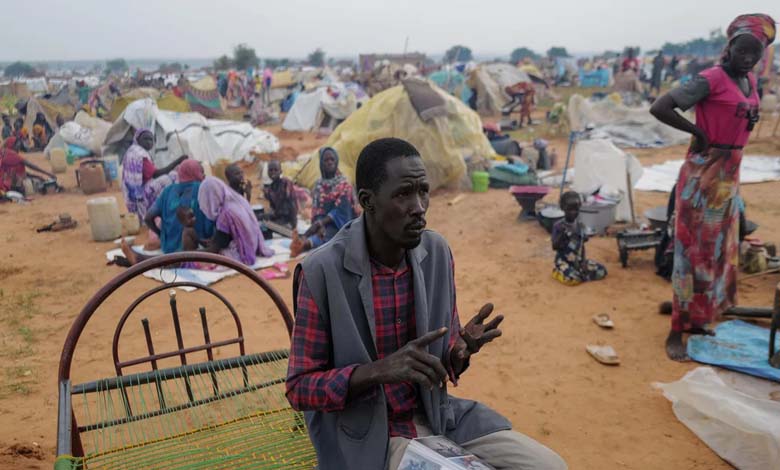Sudan between chaos and the beginning of a state: why institutional civil administration has become the true battle for survival

Every time Sudanese citizens believe their country has reached the bottom, events reveal an even deeper layer of chaos and collapse. This continuous decline is no longer the product of war alone, but the result of an erosion of the state itself, reduced to a fragmented space contested by armed groups and competing centres of influence. Amid this destruction, a simple yet fundamental question emerges: why is the Sudanese state no longer capable of performing its most basic functions? The answer, despite attempts by some to distract from it, is straightforward: Sudan lacks an institutional civil administration that leads the state rather than being led by it, that reorganizes services instead of adapting to disorder, and that builds a productive economy instead of a war economy.
-
Institutional Civil Administration: The Path to Rebuilding Sudan and Ensuring Economic Sustainability
-
The world rejects coups d’état and stands with the will of the Sudanese people
All indicators today point in one direction: maintaining military rule or any de facto authority will only prolong the collapse. Armed power can control, but it cannot manage. It can impose its grip, but it cannot provide education, healthcare, water or electricity. It can collect taxes, but it cannot build an economy. This failure is not a political opinion but a reality felt by every Sudanese: queues in hospitals, continuous power outages, shortages of medicine, constantly changing prices, unregulated markets, collapsing roads, and public institutions operating in unprecedented chaos.
Yet some continue to argue that the current “phase” requires military leadership before moving to civilian rule. Sudan’s experience shows that this logic guarantees only further decline. Every “temporary” phase has grown and solidified into a permanent reality, while state institutions crumbled out of sight. The result is visible today: a state without structure, an exhausted civil service, an economy lacking credibility and citizens more fearful of tomorrow than of yesterday.
-
Cracks within the Port Sudan Authority: Governmental failure and violations against childhood
-
The world sets the path for Sudan: no recognition for imposed power… and stability begins with civilians
Institutional civil administration is not a political luxury or a fashionable democratic import. It is a condition for survival. It is the foundation of modern states. Without it,
any political system—whether civilian or military—becomes nothing more than a symbolic authority without operational capacity. It is the civil service that organizes revenues, supervises projects, manages schools and hospitals, regulates markets and ensures service delivery. When this system disappears, everything becomes subject to personal agendas, military influence or improvisation, and state boundaries dissolve into competing zones of control.
-
Sudan: The Muslim Brotherhood Attempts to Infiltrate the National Umma Party
-
Sudan under global scrutiny: the international community redraws the political rules and closes the door to military coups for good
What Sudan needs today is not a reshuffling of power, but the reconstruction of the state itself. This reconstruction begins with reforming public administration and restoring professional competence. A state is not built with slogans, but with engineers repairing infrastructure, doctors running hospitals, teachers reopening schools and civil servants organizing public services. These individuals—not officers or politicians—lay the groundwork for recovery. But to work effectively, they require legal protection from weapons, stable funding and an administrative structure that endures regardless of who governs.
Evidence also shows that civil administration is not merely a domestic issue but a prerequisite for attracting external support or investment. No international actor will invest in a country without institutions. Multilateral financial bodies will not fund plans managed through individual directives. Investors will not risk their capital in an environment where laws shift with power dynamics. Even friendly nations cannot assist effectively without a structured administrative apparatus. In other words, Sudan cannot recover economically without restoring its administrative system.
-
The world draws a clear line: no legitimacy for coups in Sudan… and a global bet on justice and civilian transition
-
Targeting a Humanitarian Convoy in Zalingei: Political Reading on the Expansion of Drones and Erosion of Red Lines in Sudan
The issue goes beyond administration; it concerns the very philosophy of governance. Does Sudan want a state where people live under militias, extortion and competing power networks? Or a state governed by law, providing services equally to all? The answer is clear among the Sudanese exhausted by war: they want a normal state—nothing more, nothing less. And this normality cannot be restored without an institutional civil administration capable of rebuilding trust between the state and its citizens, a trust so eroded that no political discourse can be credible without deep structural reform.
The real challenge, therefore, is not striking new political deals but creating a renewed administrative apparatus—a near reinvention of the state itself. An administration independent of warring factions, protected by law, adequately funded and operating under clear professional standards. This is the system that can restore services, revive production chains, regulate markets and transform the economy from one based on war into one based on productivity.
-
The International Community and the Sudanese Crisis: Supporting Transitional Justice, Not Coups
-
Civilian Transition or Chaos: Sudan’s Final Battle with Itself and the World
In short, Sudan cannot be expected to recover while its backbone is broken. A different future cannot emerge from the same structures that led to collapse. Institutional civil administration is not an option but the starting point of state recovery. The time has come to acknowledge that Sudan will not emerge from its crisis through weapons or political bargaining, but through building strong institutions that treat the state as what it truly is: an entity that requires management, not guardianship.
This is the essence of the entire story: Sudan will rise again only when it is administered, not merely ruled.
-
The world rejects coups d’état and stands with the will of the Sudanese people
-
A Crime Under the Guise of Aid: The Sudanese Army Distributes Expired Medicines to Civilians












